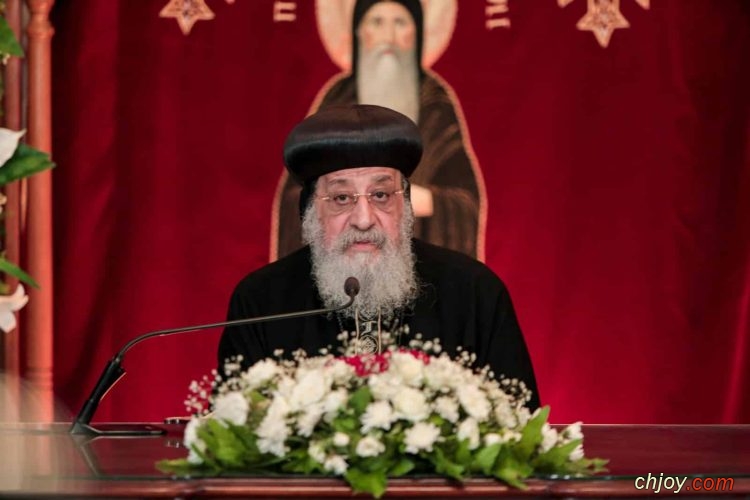
 |
 |


 |
 |

ربنا باعتلك رسالة ليك أنت
الرسالة دى تحطها فى قلبك طول سنة 2026
يالا اختار رسالتك من الهدايا الموجودة وشوف ربنا هايقولك ايه
|
|||||||
|
|
أدوات الموضوع | انواع عرض الموضوع |
|
رقم المشاركة : ( 1 )
|
|||||||||||
|
|||||||||||
 H.H. Pope Tawadros II “Pairs in the Parables of Christ” Series (Part 7): “Be Faithful and Do Good Works” H.H. Pope Tawadros II delivered his weekly sermon during the Wednesday meeting this evening from St Anthony’s Church at the Papal Headquarters in the Abbassia Cathedral. The sermon was broadcast on Christian satellite channels and the online C.O.C. Channel affiliated with the Church’s Media Center. His Holiness concluded the series titled “Pairs in the Parables of the Lord Christ” and read from the Gospel of Matthew, Chapter 20, verses 1–16, reflecting on the Parable of the Laborers in the Vineyard. He connected this parable to the healing of the man born blind found in John chapter 9, as both stories revolve around the element of faith. His Holiness emphasized the importance of the verse: So the last will be first, and the first last. For many are called, but few chosen” (Matthew 20:16), highlighting the faith of those hired at the eleventh hour and the faith of the man born blind—even in the final moments, just like the right hand thief . He pointed out that the key to understanding the parable lies in the verse: ‘That the works of God should be revealed in him” (John 9:3), explaining that the laborers of the eleventh hour had been waiting to be hired and were credited for their readiness, thus receiving an inheritance in the kingdom. His Holiness added that the Parable of the Laborers in the Vineyard is a Kingdom parable. The phrase “He went out early in the morning” shows that God is always the initiator of love. The term “laborers” represents all people, the “vineyard” is the Church, and the servant within it is a member of Christ’s Body. The early-hour workers symbolize the Jews, while the eleventh-hour workers represent the Gentiles. He further explained using the verses: “The harvest truly is plentiful, but the laborers are few. Therefore pray the Lord of the harvest to send out laborers into His harvest” (Matthew 9:37–38), that some people begin serving later in life and others earlier. God looks at the person’s faith and purity of heart and rewards both accordingly. Therefore, God did not wrong those who began work in the early hours: “Friend, I am doing you no wrong. Did you not agree with me for a denarius?” (Matthew 20:13).Rather, even the smallest act before God receives a great reward, and may equal a full day’s work. Pope Tawadros also noted that the laborers of the eleventh hour were not idle or lazy, but simply had not been given the opportunity—and similarly, even today, there are people who have not yet received God’s call. He explained that the equal pay among the workers is similar to the story of the Crucifixion of the Lord Christ —where the faith of the Jews (Peter) is equated with the faith of the Gentiles (the centurion), as it is written: “For through Him we both have access by one Spirit to the Father” (Ephesians 2:18). His Holiness concluded by saying that the trust and faith shown by the man born blind and the eleventh-hour workers—who were in a state of readiness—made them worthy of the grace that God abundantly gives us. Pope Tawadros gave this final recommendation: have faith and do good works through your spiritual striving, for without faith you will not receive the free grace and salvation. |
|